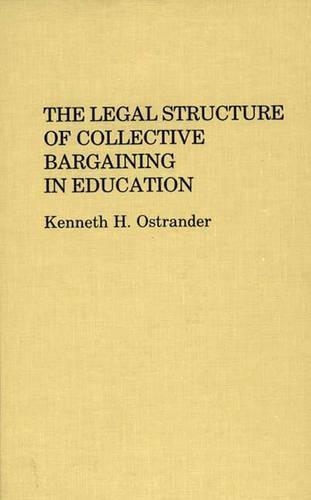
The Legal Structure of Collective Bargaining in Education
(Hardback)
Publishing Details
The Legal Structure of Collective Bargaining in Education
By (Author) Kenneth Ostrander
Bloomsbury Publishing PLC
Praeger Publishers Inc
16th October 1987
United States
Classifications
Tertiary Education
Non Fiction
Employment and labour law: general
Industrial relations, occupational health and safety
344.41018904137
Physical Properties
Hardback
164
Description
Written in a clear, direct style, this book provides educators with a comprehensive presentation of the laws and rules governing collective bargaining. Establishing from the outset that educators have a constitutionally protected right to organize for purposes of bargaining collectively, Ostrander identifies basic regulations for such activity in the education field and goes on to present in-depth analyses of specific legal issues that may arise. Topics include impasse procedures, the right of middle managers to bargain collectively, the legal status of strikes, the legal basis for public involvement in bargaining, statutory provisions for union security, the legal rights of the individual in a collective bargaining setting, legal issues in post-secondary bargaining, and the legal status of grievance arbitration.
Reviews
The author, a University of Washington education professor who teaches collective bargaining, school law, and employee relations, state his purpose is to emphasize the framework of rules within which collective bargaining activities operate. In doing this the author discusses the common law's impact, the attempt to apply the United States Constitution, and the implemented laws of various states. The discussion includes grievances, mediations, arbitrations, and court opinions. . .-Law Books in Review
"The author, a University of Washington education professor who teaches collective bargaining, school law, and employee relations, state his purpose is to emphasize the framework of rules within which collective bargaining activities operate. In doing this the author discusses the common law's impact, the attempt to apply the United States Constitution, and the implemented laws of various states. The discussion includes grievances, mediations, arbitrations, and court opinions. . ."-Law Books in Review
Author Bio
KENNETH H. OSTRANDER is Professor of Education at the University of Washington.
